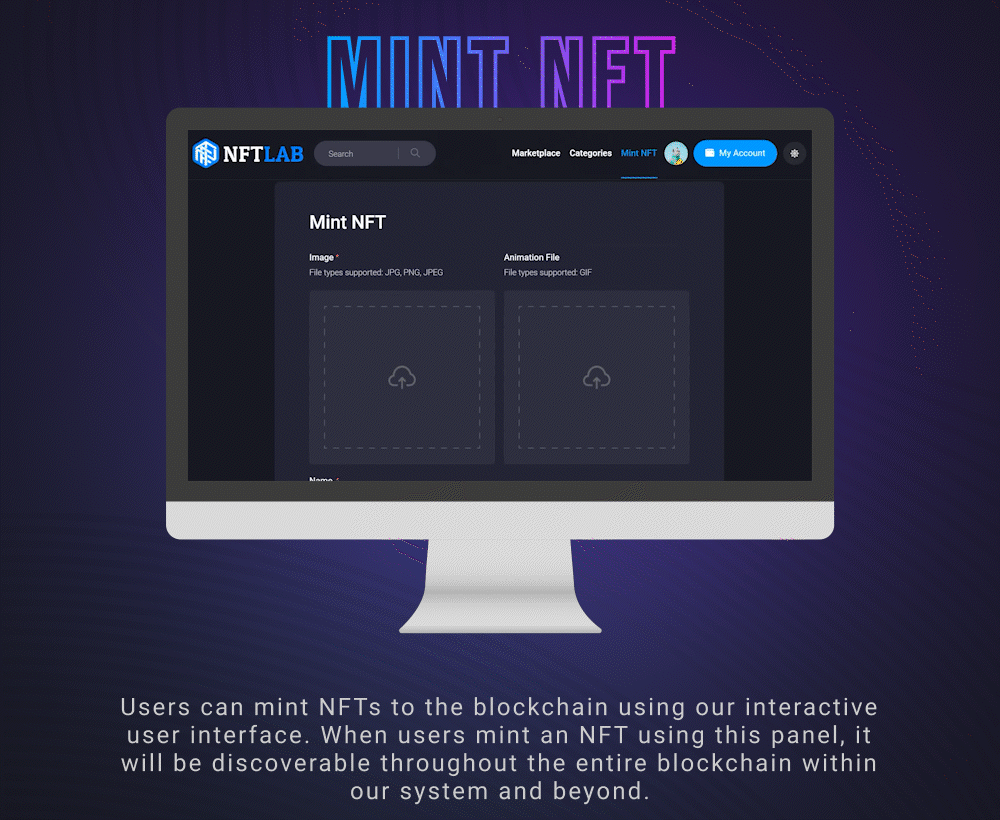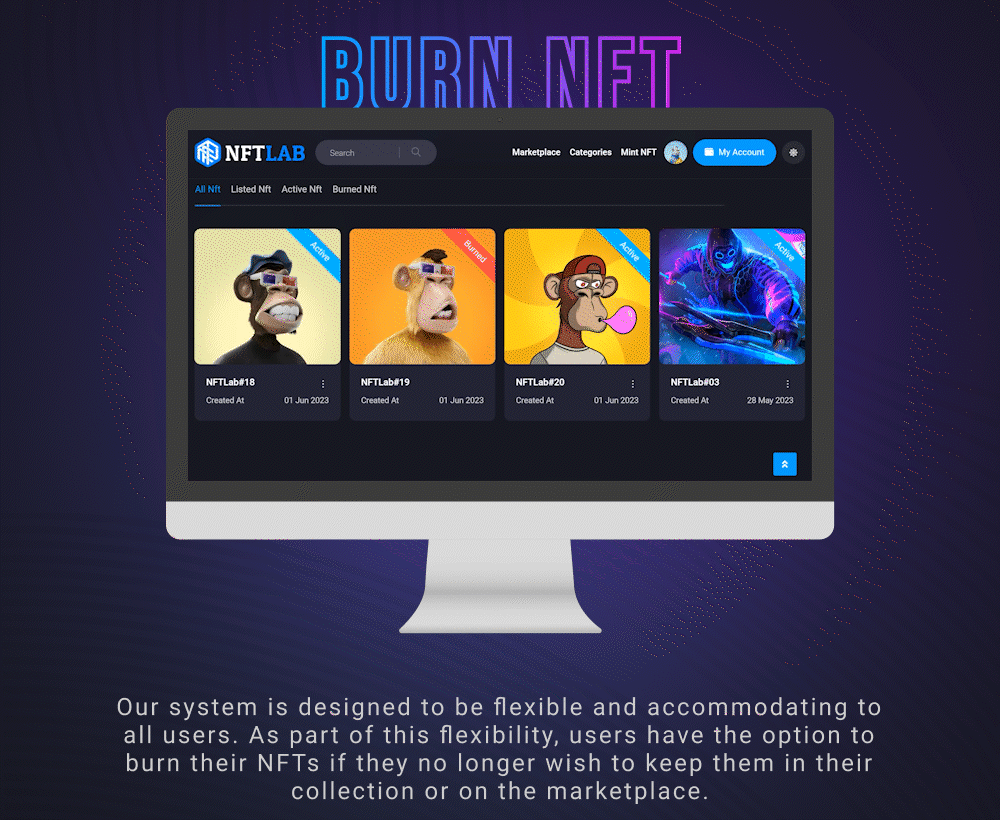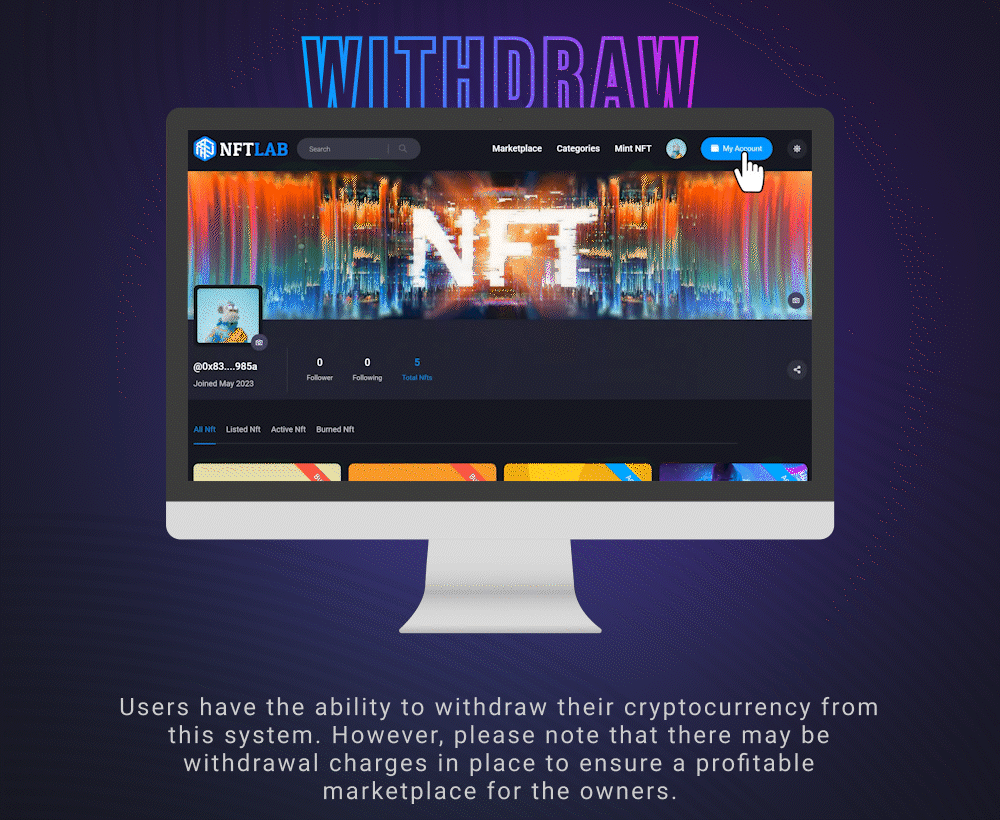
Introduction:
An “NFT Marketplace” website is a digital platform that serves as a marketplace for buying, selling, and trading Non-Fungible Tokens (NFTs). NFTs are unique digital assets that represent ownership or proof of authenticity of digital or physical items, including digital art, music, virtual real estate, collectibles, and more. NFT marketplaces have gained significant popularity in the digital world, providing a platform for creators and collectors to engage in NFT transactions.
Business Model:
The business model for an NFT Marketplace website typically includes the following components:
Transaction Fees: NFT marketplaces generate revenue by charging transaction fees on every NFT sale or transfer. These fees are typically a percentage of the sale price and may vary based on the platform.
Listing Fees: Some NFT marketplaces charge creators or sellers a fee to list their NFTs on the platform. This fee can be one-time or recurring and may depend on factors like visibility and promotion.
Gas Fees: In blockchain-based NFT marketplaces, users often pay gas fees to complete transactions. The marketplace may share a portion of these fees as revenue.
Featured Listings: Sellers can pay extra fees to have their NFT listings featured prominently on the platform, gaining more visibility and potential buyers.
Creator Royalties: NFT marketplaces often enable creators to set royalty percentages for themselves. This means that creators earn a percentage of each resale of their NFTs on the platform.
Premium Services: Offering premium services to users, such as advanced analytics, portfolio management tools, and NFT curation services, can generate revenue through subscription fees.
NFT Drops: Some marketplaces host exclusive NFT drops or auctions in partnership with artists, celebrities, or brands. They earn revenue by charging fees for these events.
Virtual Real Estate: If the marketplace includes virtual real estate sales, it can earn revenue through land sales, development fees, and virtual property taxes.
NFT Minting Tools: Providing tools for creators to mint NFTs, especially on blockchain networks like Ethereum, can generate revenue through minting fees.
Escrow Services: Offering escrow services for high-value NFT transactions, ensuring security and trust, can be monetized through service fees.
Curated Collections: Curating and promoting specific collections of NFTs may involve partnerships and fees for featured placements.
Data and Analytics: Selling market data, trading insights, and analytics tools to NFT traders and collectors can be another source of income.
Virtual Events: Hosting virtual events, conferences, or NFT-related experiences can generate revenue through ticket sales and sponsorship deals.
NFT Auctions: Hosting NFT auctions, where users bid on NFTs, can earn revenue through auction fees and a percentage of the final sale price.
Advertising and Partnerships: Displaying advertisements or partnering with brands, artists, and other NFT-related businesses for promotional purposes generates advertising revenue and referral fees.
The success of an NFT Marketplace website depends on factors such as user interface, marketplace reputation, the range of supported NFTs, security features, and the ability to attract both creators and collectors. NFTs have opened new possibilities in the digital art and collectibles world, and these marketplaces play a pivotal role in facilitating the exchange of these unique digital assets.
Developed for Next Generation, Smart & Easy non-fungible tokens or Digital assets Automation system. No Monthly Fees, No Hidden Charges, and No Encryptions. Comes for a lifetime at an affordable price. NFTLab comes with all the essential features required to automate your NFT business globally. It allows creating and minting your digital assets in the network, comes with ease, and allows the management of the NFT services. Comes with automated connections with Metamask, possible to burn and mint anytime, and more are coming. It’s a next-generation NFT solutions automation software that automates users, payments, NFTs, billing, management, support services, and other core services.
NFTLab is a complete NFT Marketplace system that allows you to start your own NFT marketplace platform within a very short time. One of the benefits of using our NFTLab is that it can significantly reduce the time and cost involved in developing a custom platform from scratch. Anyone can simply purchase the NFTLab and launch their NFT marketplace platform in a matter of minutes. More important things, NFTLab ensures robust security measures such as two-factor authentication, request encryption, password hashing, OTP, and Email & SMS notifications to keep users and their funds secure from hacking and cyber-attacks. Security is our main priority, and our system is protected by strong layers of security.
Frontend: https://script.viserlab.com/nftlab/
Backend: https://script.viserlab.com/nftlab/admin










– Using the best, future-proof, and secure stack known to the world: Bootstrap, Laravel framework, jQuery.
Business Model:
An “NFT Marketplace” website is a digital platform that serves as a marketplace for buying, selling, and trading Non-Fungible Tokens (NFTs). NFTs are unique digital assets that represent ownership or proof of authenticity of digital or physical items, including digital art, music, virtual real estate, collectibles, and more.